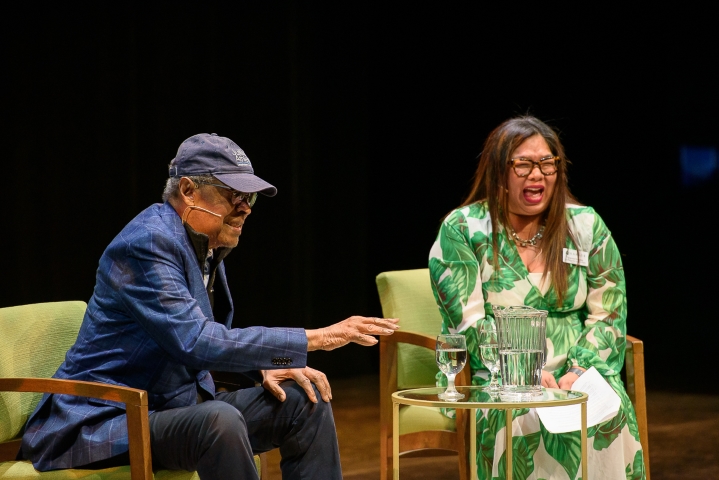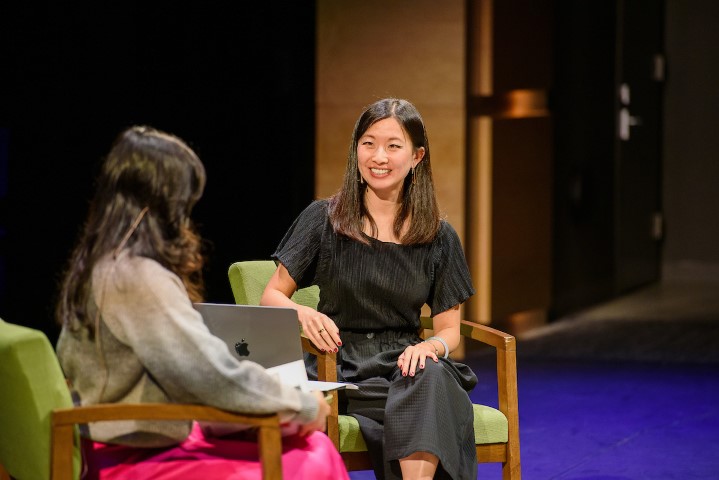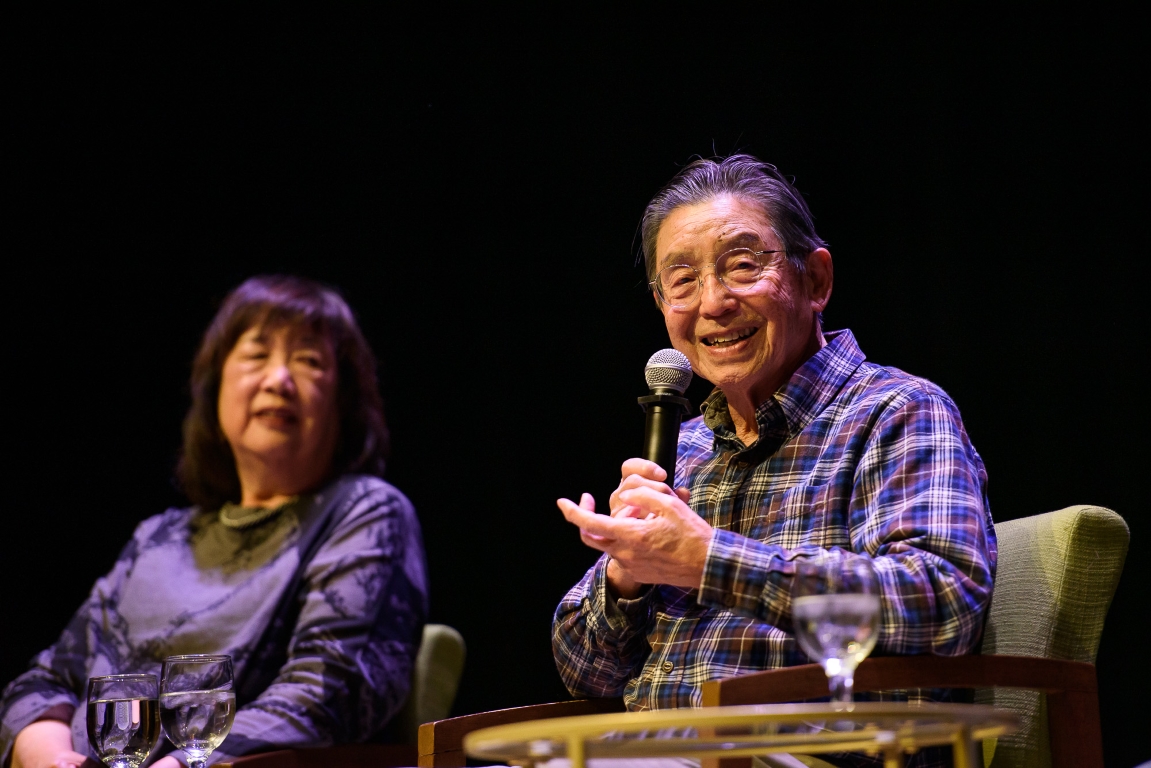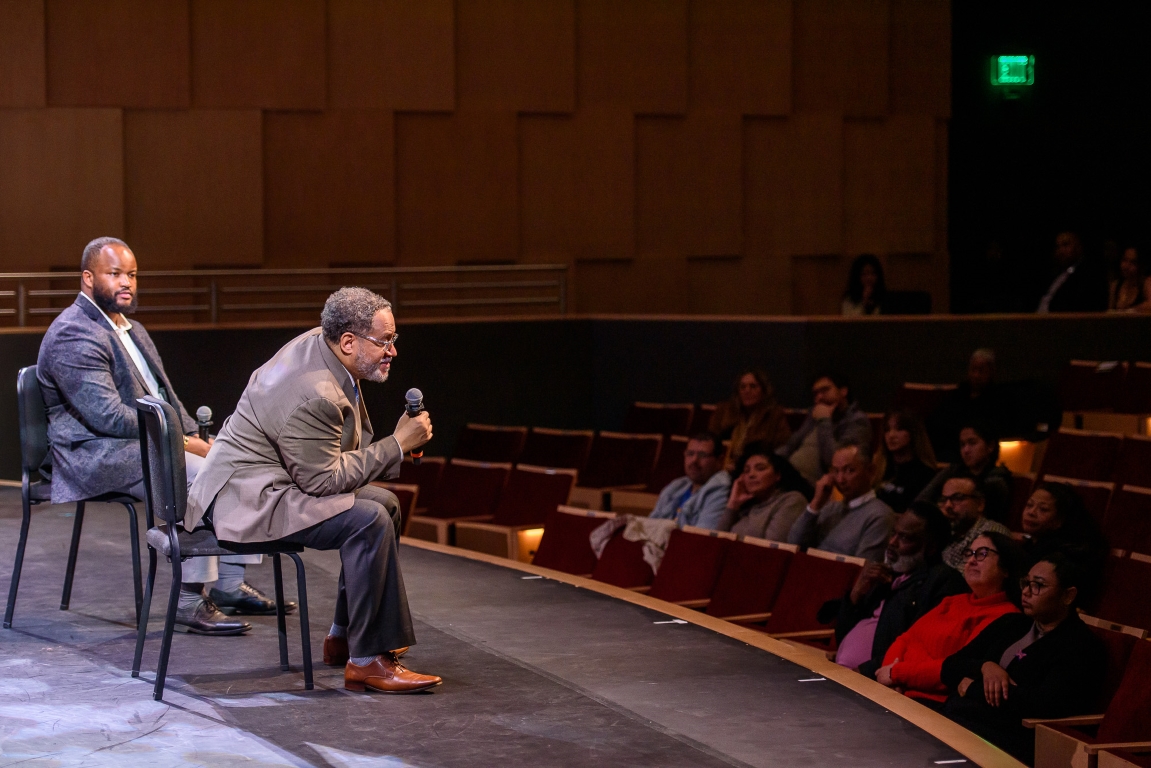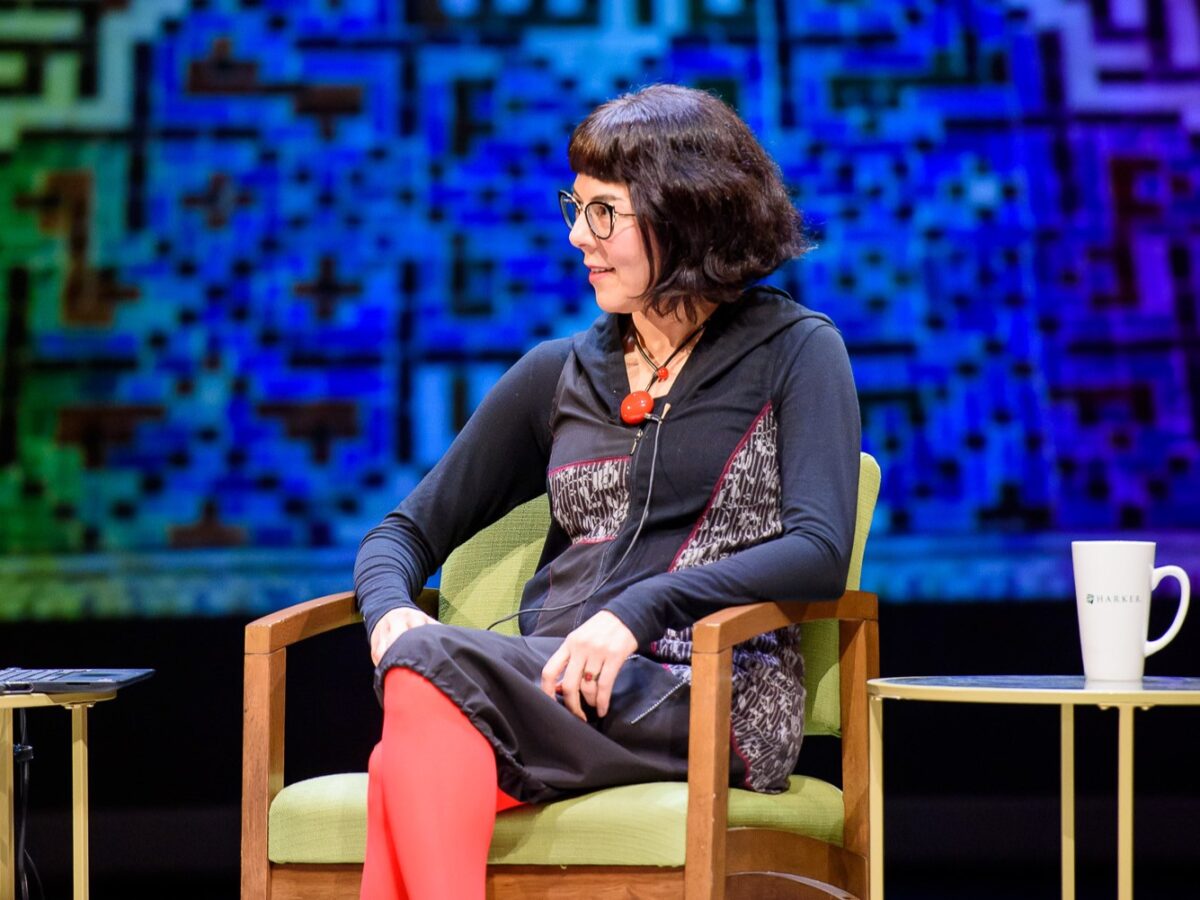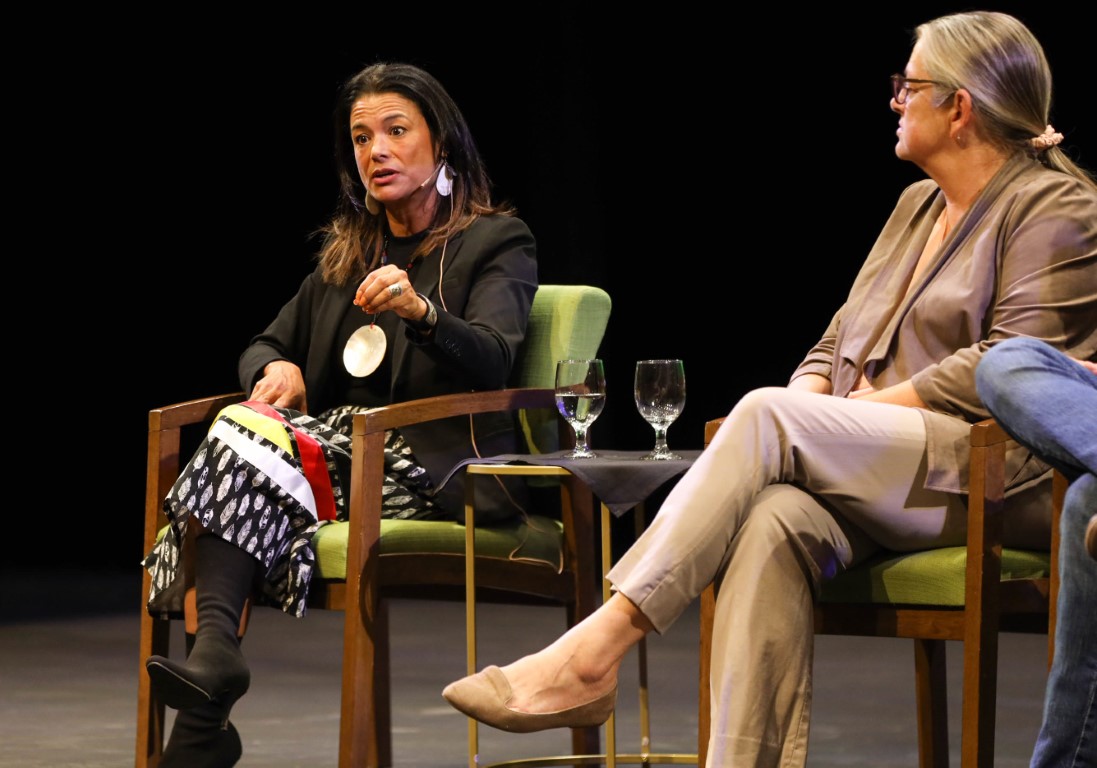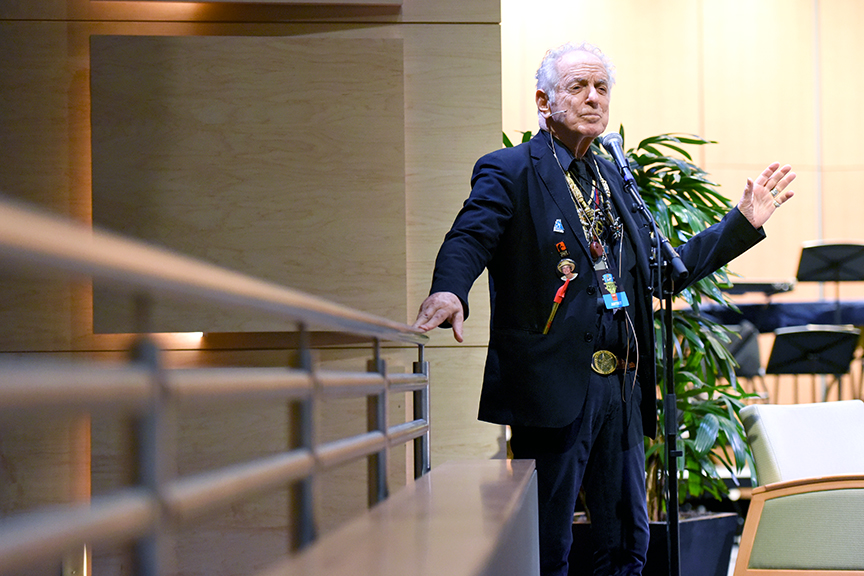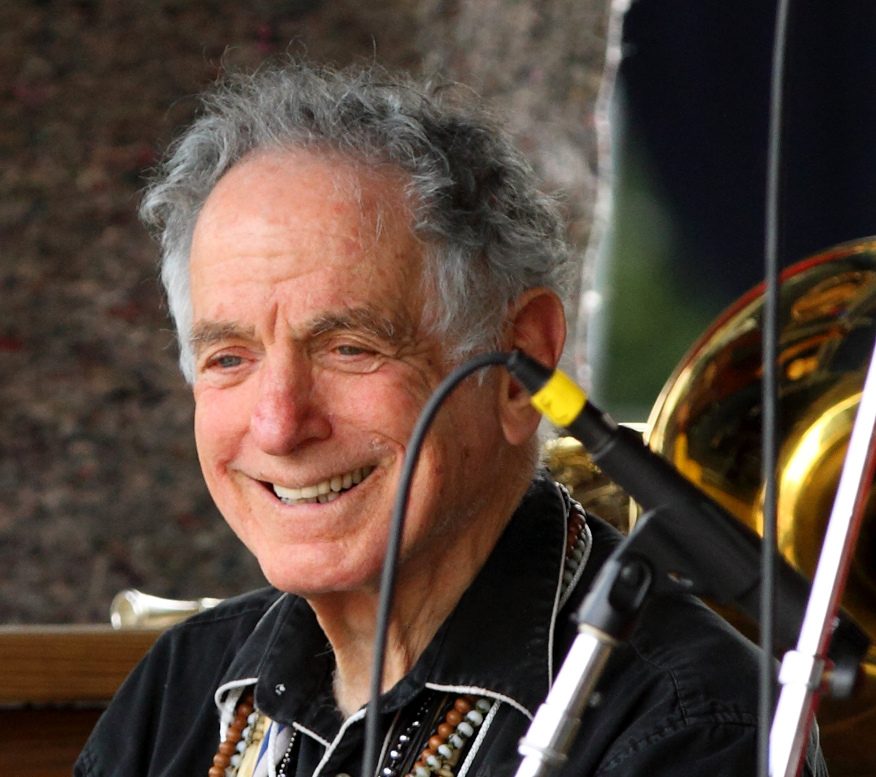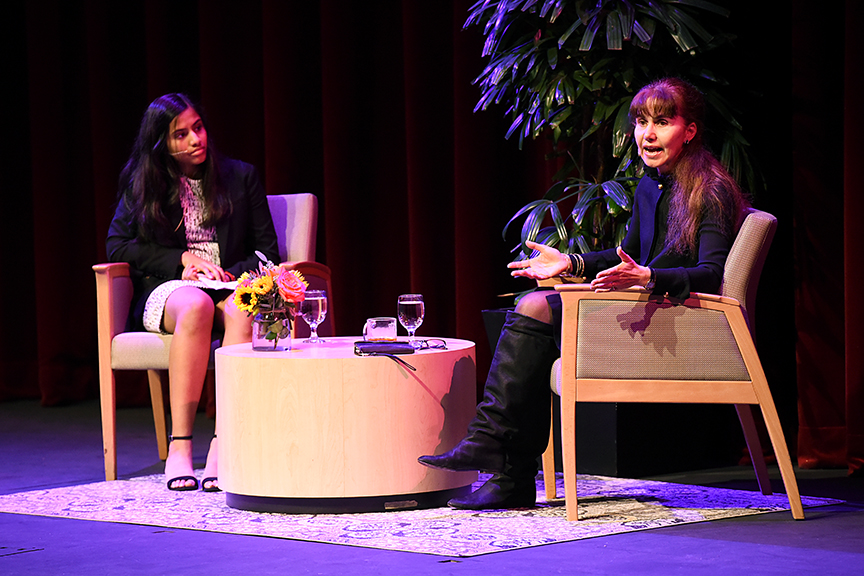Harker held its second annual Martin Luther King, Jr. celebration featuring Dr. Clarence B. Jones, who served as King’s lawyer and speechwriter.
Harker Speaker Series
Connie Zheng discusses processes, seeds and maps at Harker Speaker Series
Oakland-based artist Connie Zheng gave attendees an in-depth look into her processes and the experiences that inform them at the Harker Speaker Series.
Connie Zheng to be next artist-in-residence with Dickinson Endowment
Chinese-born artist, writer and filmmaker Connie Zheng will begin her residency for the Dickinson Visual Arts Endowment.
Harker Speaker Series screens “Chinatown Rising,” filmmakers speak to audience
The Harker Speaker series hosted a special screening of the 2020 documentary “Chinatown Rising,” created by the father-and-son team of filmmakers of Harry Chuck and Josh Chuck.
Dr. Michael Eric Dyson addresses ‘United States of Amnesia’ at Harker Speaker Series
Hundreds arrived at the Rothschild Performing Arts Center on Friday night for the special Harker Speaker Series event with Dr. Michael Eric Dyson.
Pantea Karimi talks art, history, identity and science at Harker Speaker Series
On Nov. 29, Iranian-American artist Pantea Karimi, the 2023 Dickinson Endowment artist-in-residence, appeared as the second speaker in the 2023-24 Harker Speaker Series at the Patil Theater.
Panel discusses Muwekma Ohlone tribe’s ongoing fight for federal recognition
A panel of experts on Bay Area Indigenous history was joined by Charlene Nijmeh, chairwoman of the Muwekma Ohline tribe on Nov. 2 for the first event of this year’s Harker Speaker Series.
Legendary composer David Amram shares life and music at Harker Speaker Series
On Friday night, the Harker Speaker Series hosted a special evening with legendary composer David Amram, who has collaborated with many of the 20th century’s most influential cultural figures, including Jack Kerouac, Bob Dylan, Hunter S. Thompson and Leonard Bernstein.
